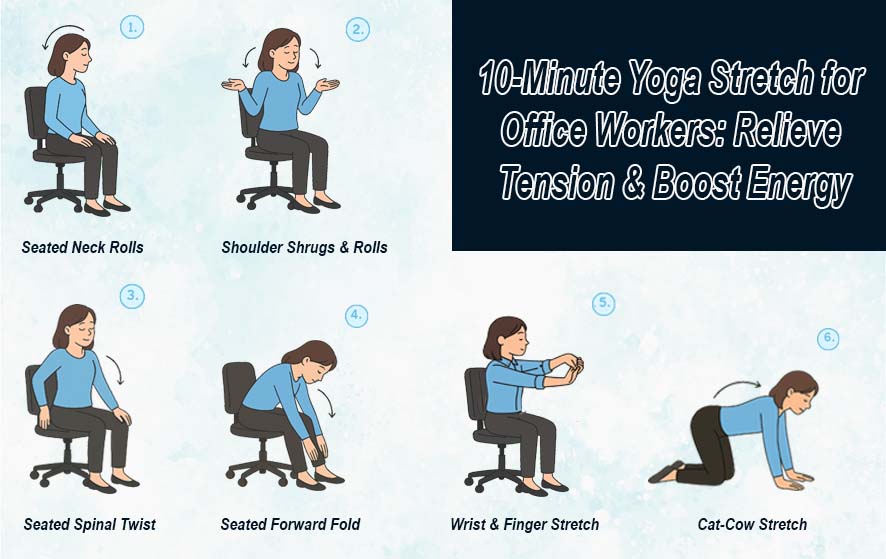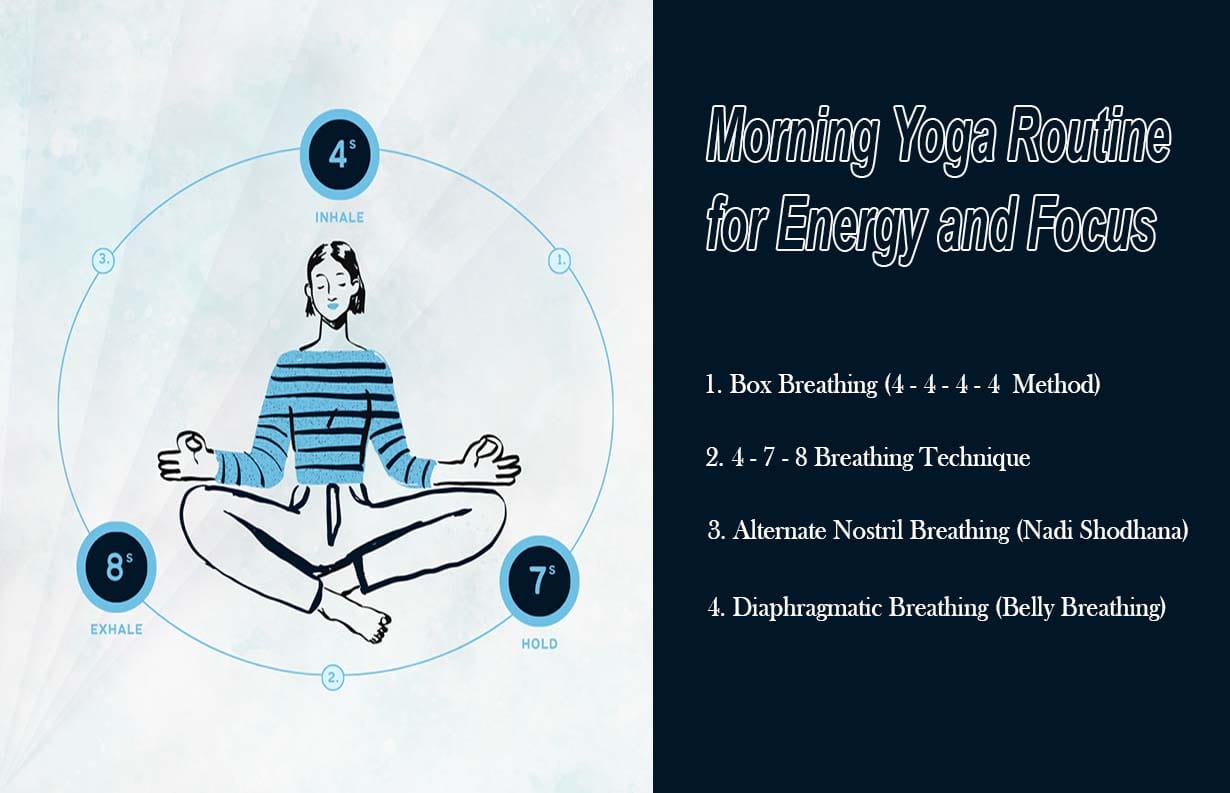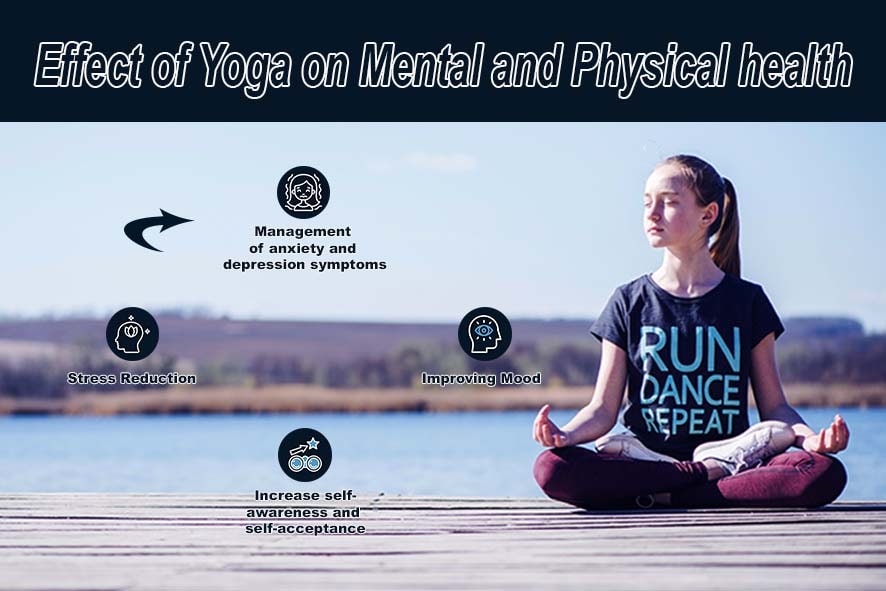Yoga for Mental Health
In today’s fast-paced world, mental health has become an important topic of conversation. With increasing awareness, more people are looking for ways to boost their mental well-being. One practice that has received significant attention for its mental health benefits is yoga. This ancient discipline not only strengthens the body but also clams the mind, offering a holistic approach to overall health.
In this blog post, we will explore the numerous mental health benefits of yoga. We’ll uncover the science behind its positive effects, share personal stories of transformation, and provide practical tips for incorporating yoga into your daily routine. Whether you’re a yoga beginner or an experienced practitioner, this guide will offer valuable insight to help you achieve a balanced and peaceful mind.
Understanding Science
Yoga’s effect on mental health is not just anecdotal. This is supported by scientific research. When you do yoga, your brain releases feel-good hormones like serotonin and dopamine. These hormones are essential for mood regulation and overall happiness. Additionally, yoga helps reduce stress hormones such as cortisol and adrenaline, which are often elevated in people who experience anxiety and depression.
Engaging in yoga also stimulates the parasympathetic nervous system, which is responsible for the body’s “relaxation and digestion” function. This activation promotes relaxation and reduces the fight-or-fight response, which is often triggered in stressful situations. By balancing these hormonal responses, yoga helps to create a sense of calm and stability in the mind and body.
Mental Health Benefits of Yoga
Stress Reduction
One of the most notable mental health of yoga is its capacity to reduce stress. Through controlled breathing exercises and mindful movement, yoga encourages the release of accumulated stress in the body. Regular exercise helps lower cortisol levels, leading to a calmer and more relaxed mind.
Management of anxiety and depression symptoms
Yoga is an effective tool for controlling the symptoms of anxiety and depression. By focusing on the present moment and promoting mindfulness, yoga helps break the cycle of negative thoughts. Posture, combined with deep breathing, activates the parasympathetic nervous system, promoting a sense of relaxation and well-being.
Improving Mood
Regularly engaging in yoga can significantly improve your mood. The release of endorphins during physical activity creates a natural high, while the meditative aspect of yoga helps clear the mind of clutter. This combination promotes a more positive outlook on life and emotional resilience.
Increase self-awareness and self-acceptance
Yoga encourages introspection and self-awareness. By connecting with your breath and body, you become more in tune with your thoughts and emotions. This heightened self-awareness promotes self-acceptance and compassion, allowing you to approach life’s challenges with a balanced perspective.
Personal stories
Jane’s journey
Jane a 34-year-old marketing executive, had struggled with chronic anxiety for years. She decided to try yoga after hearing about its mental health benefits. Within a few months of regular practice, Jane noticed a significant reduction in her anxiety levels. She feels more grounded and better equipped to handle pressure at work. Yoga became her sanctuary, providing a much-needed break from the demands of everyday life.
Change of Mic
Mike, a college student, battled depression during her academic career. Feeling overwhelmed and disconnected, He turned to yoga as a last resort. Mindfulness and deep breathing exercises helped Mike regain control of his thoughts and emotions. Over time, she found joy in the simple act of moving her body and connecting with her breath. Mike’s symptoms of depression gradually eased, and he now advocates yoga as a powerful tool for mental health.
Yoga Techniques for Mental Health
Asana (Currency)
Certain yoga poses are particularly beneficial for mental health. Poses such as child’s pose (balasana) forward fold (atnasana), and legs up the wall (viparita karani) promote relaxation and reduce stress. Incorporate these poses into your daily routine, their calming effects.
Pranayama (breathing exercises)
Breathing exercises play an important role in yoga practice. Techniques like Nadi Shodhana (Alternate Nostril Breathing) and Ujjayi (Ocean Breath) help regulate the breath and nervous system. Pranayama practice daily can significantly reduce anxiety and promote a sense of inner peace.
Meditation Exercises
Meditation is a core component of yoga that enhances mental clarity and emotional stability. Practices such as mindfulness meditation and loving-kindness meditation promote a positive mindset and improve overall health. Set aside a few minutes each day to meditate to reap its mental health benefits.
The Science Behind it
Historical Research
The connection between yoga and mental health has been studied for decades. Historical research has shown that yoga practices can lead to significant improvements in mental well-being. Studies conducted in the 1970s and 1980s revealed that yoga reduces symptoms of anxiety and depression, improves mood, and improves overall quality of life.
Current Research
Recent studies continue to support the mental health benefits of yoga. A study published in the Journal of Clinical Psychology found that yoga-based interventions significantly reduced symptoms of anxiety and depression in participants. Another study in the International Journal of Yoga found that yoga practice improves emotional regulation and resilience. These findings highlight the effectiveness of yoga as a complementary approach to mental health care.
Conclusion
Adding yoga to your daily routine can have profound effects on your mental health. From reducing stress and managing anxiety to improving mood and increasing self-awareness, yoga offers a holistic approach to mental well-being. By understanding the science behind yoga and learning practical techniques, you can take meaningful steps toward a healthier mind and body.
Remember, self-care is important, and prioritizing your mental health is a powerful act of self-love. If you are new to yoga, start with simple poses and breathing exercises. Build your practice a slowly and explore meditation to deepen your connection with yourself.
Ready to start your yoga journey? Join our community of wellness seekers and mental health enthusiasts. Together, we can create a supportive space for growth and change. Start your practice today and experience the incredible benefits of yoga for mental health.













Pingback: Exploring mental health in a fast-paced world | sherekhuda